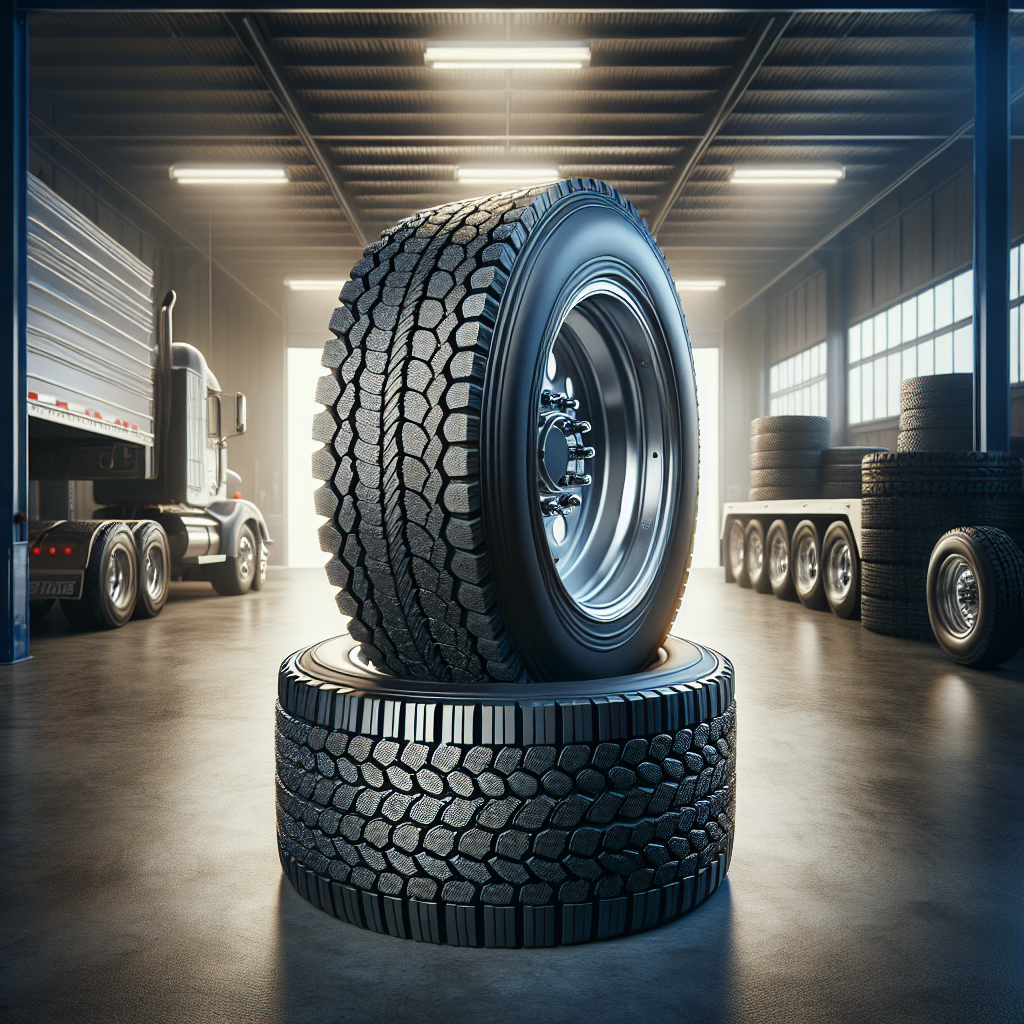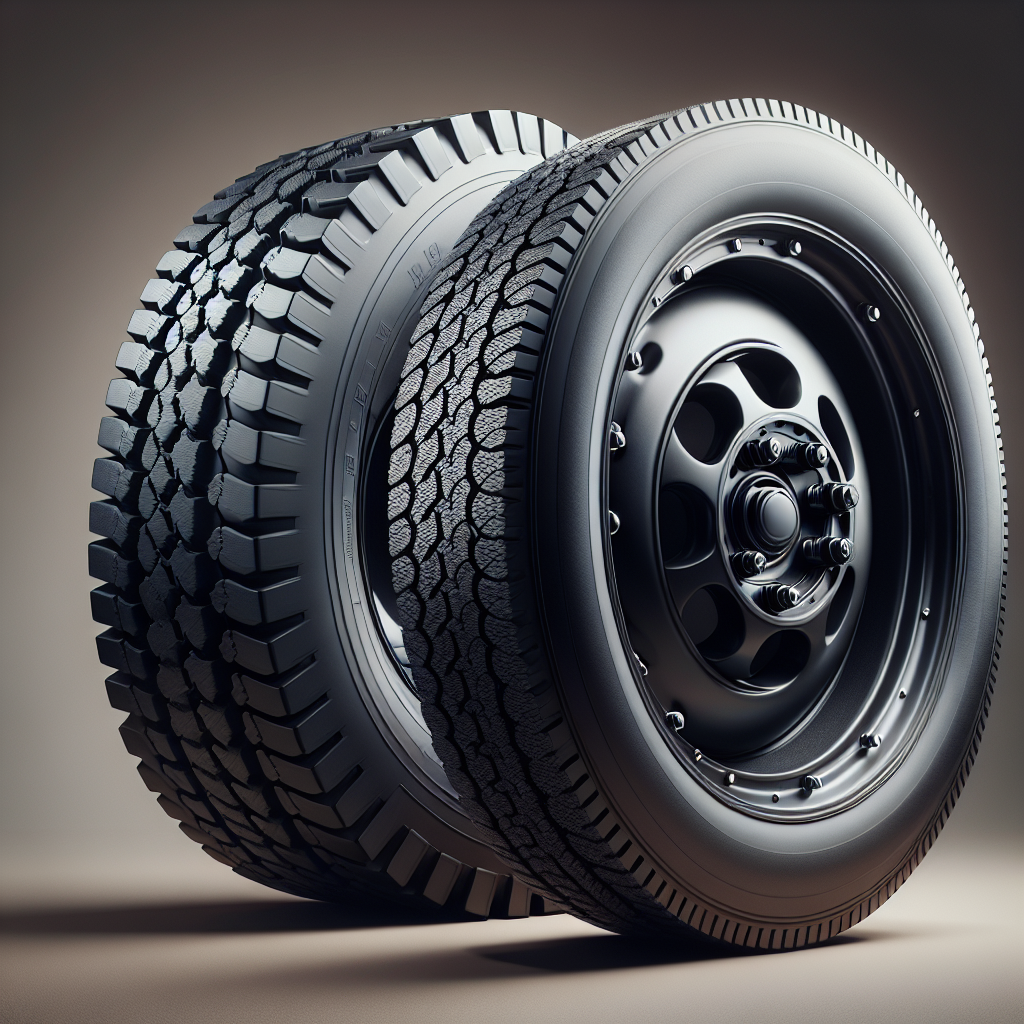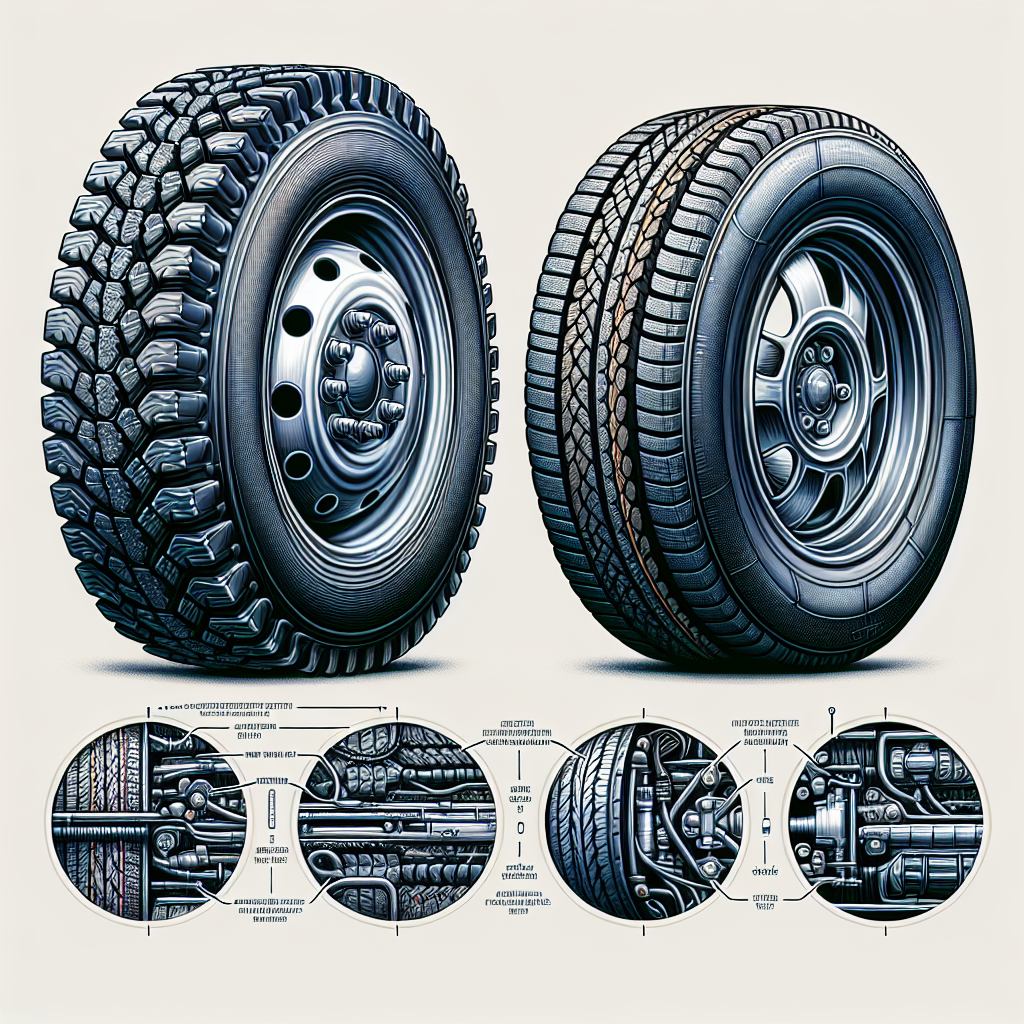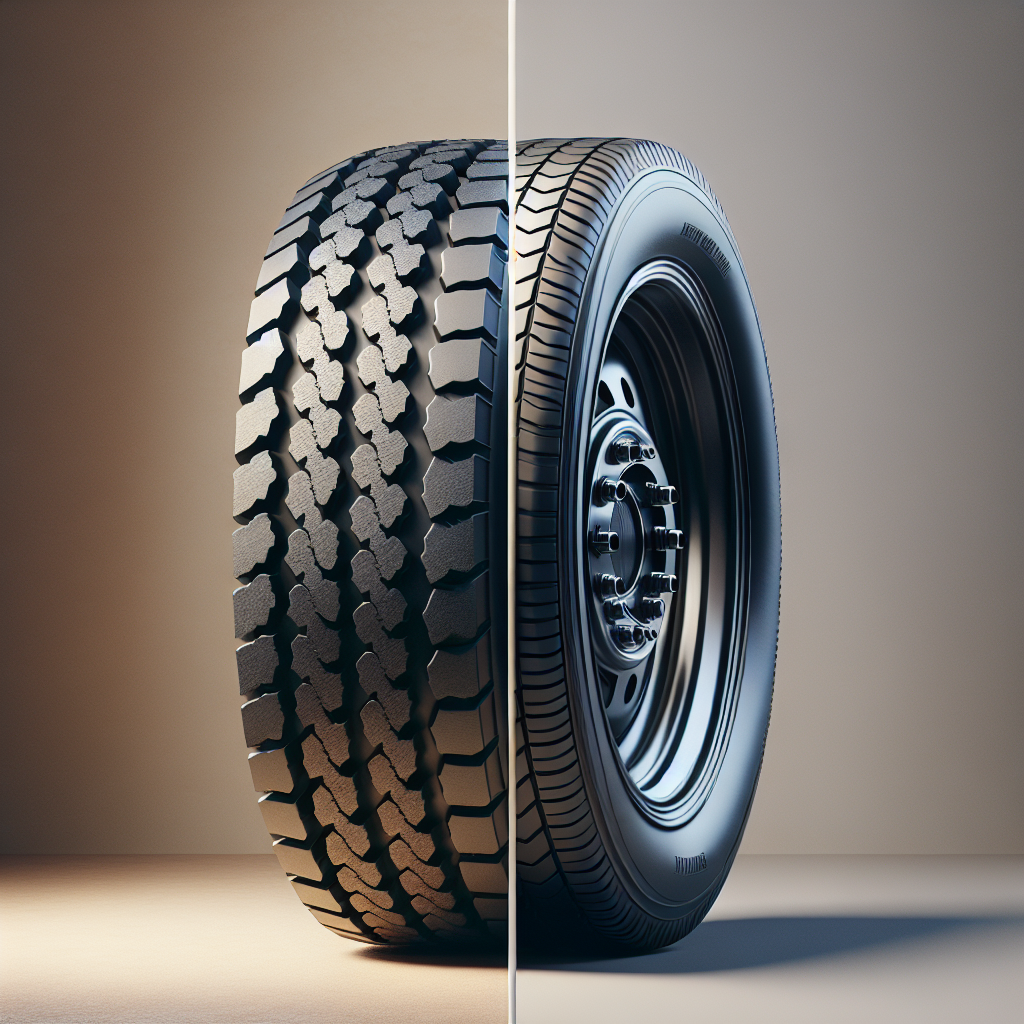When it comes to towing and transporting heavy loads, understanding the difference between trailer tires and automotive tires is crucial. While both types of tires serve the fundamental purpose of providing traction and support, they are engineered for different applications and conditions. Trailer tires are specifically designed to handle the unique demands of towing, while automotive tires cater to the needs of vehicles driven on public roads.
One of the primary distinctions lies in the design and structure of these tires. Trailer tires typically feature a stiffer sidewall compared to automotive tires. This rigidity allows them to maintain stability under heavy loads and resist swaying while in motion. Additionally, trailer tires often come with a higher load-carrying capacity and are built to endure the stress of continuous weight-bearing.
On the other hand, automotive tires prioritize comfort and performance, providing better grip and handling characteristics on various road surfaces. They are designed for speed and agility, which are essential for passenger vehicles. Furthermore, automotive tires feature a tread pattern optimized for traction and water dispersion, essential for safe driving conditions.
Understanding these key differences can help you make informed decisions when it comes to purchasing tires for your vehicle or trailer. Always ensure you are using the right type of tire for your specific needs to enhance safety and performance on the road. Tow with peace of mind, knowing that trailerwatchdog is standing guard.
Key Differences in Tire Construction and Design

The construction and design of tires play a vital role in their functionality and performance. When examining the key differences in tire construction and design between trailer tires and automotive tires, several factors stand out.
Firstly, the material composition differs significantly. Trailer tires are often made using a tougher rubber compound that enhances durability and resistance to wear, particularly in demanding environments. This robust construction is essential for handling the heavy loads trailers typically carry.
In terms of design, trailer tires feature a stiffer sidewall that provides better load stability. This rigidity helps to prevent sidewall flexing during towing, which can lead to swaying and loss of control. In contrast, automotive tires are designed with more flexibility in their sidewalls, allowing for improved traction and comfort while driving.
Additionally, the tread patterns of these tires are tailored for their specific uses. Trailer tires usually have a simpler tread design that focuses on maximizing contact with the road surface for enhanced stability. Their tread is often less intricate than that of automotive tires, which are designed for superior grip and performance on various terrains and conditions.
Moreover, trailer tires commonly come with a higher load rating, allowing them to support heavier weights than standard automotive tires. This is crucial for ensuring safety and performance when hauling significant cargo.
Understanding these fundamental differences in construction and design can help you make informed choices when selecting tires for your vehicle or trailer, ultimately enhancing safety and performance on the road.
Performance Variations Between Trailer and Automotive Tires
When it comes to performance variations between trailer and automotive tires, several key aspects influence their effectiveness in different scenarios. Understanding these differences is crucial for anyone involved in towing or hauling heavy loads.
One significant variation lies in the load capacity. Trailer tires are engineered to handle higher loads, which is essential for maintaining stability and safety when transporting heavy cargo. Their construction allows them to withstand the stresses of heavy weights without compromising performance, unlike automotive tires, which are primarily designed for passenger vehicles and lighter loads.
Another important factor is heat dissipation. During operation, tires generate heat, and trailer tires are designed with features that help dissipate this heat more effectively under load. This capability prevents overheating, which can lead to tire blowouts or premature wear. In contrast, automotive tires may not be subjected to the same heat levels due to lighter loads, which can affect their longevity and performance if used excessively for towing.
Moreover, the traction and grip characteristics differ between the two types of tires. While automotive tires are optimized for various driving conditions—such as wet, dry, or off-road—trailer tires prioritize stability and straight-line performance, especially during long hauls. This specialized design ensures that trailers maintain a straight path, minimizing swaying and enhancing control.
Additionally, the rolling resistance plays a crucial role in performance. Trailer tires typically have a lower rolling resistance, which helps improve fuel efficiency when towing. This characteristic is essential for minimizing the strain on the towing vehicle and optimizing fuel consumption during long-distance travel.
In summary, recognizing the performance variations between trailer and automotive tires can aid in selecting the right tires for your specific needs, ultimately enhancing safety and efficiency on the road.
Safety Considerations for Trailer and Automotive Tires

Safety is paramount when it comes to both trailer and automotive tires, but the considerations for each type can differ significantly. Understanding these safety aspects is essential for ensuring a smooth and secure towing experience.
One of the primary safety considerations for trailer tires is their tread design. Trailer tires typically feature a unique tread pattern that enhances grip and stability, particularly when carrying heavy loads. This design helps prevent skidding or swaying, which can lead to dangerous situations on the road. In contrast, automotive tires are designed with tread patterns optimized for various driving conditions, focusing on performance and handling rather than load stability.
Another critical aspect is inflation pressure. Maintaining proper tire pressure is crucial for both types of tires, but it is especially important for trailers. Under-inflated trailer tires can result in overheating and blowouts, while over-inflation may lead to a harsh ride and reduced traction. Regularly checking and adjusting tire pressure according to manufacturer recommendations can significantly enhance safety.
Additionally, the age and condition of tires should not be overlooked. Tires have a lifespan, and using old or worn-out tires can increase the risk of failure. For trailers, it's vital to inspect the tires for signs of wear, such as cracks, bulges, or uneven tread. Automotive tires also require routine checks, but the consequences of tire failure can be more severe when towing a heavy load.
Lastly, understanding the load ratings of tires is essential for safety. Trailer tires are rated to handle specific loads, and exceeding these ratings can compromise performance and lead to catastrophic failures. It is crucial to match the tire load rating with the weight of the trailer and its cargo to ensure safe towing.
By taking these safety considerations into account, you can significantly reduce the risk of tire-related incidents, ensuring a safer journey for both you and your cargo.
Choosing the Right Tires for Your Vehicle

Selecting the right tires for your vehicle is a critical decision that can significantly impact performance, safety, and overall driving experience. With the variety of tire options available, understanding the specific needs of your vehicle is essential.
First and foremost, consider the type of vehicle you own. For example, if you have a passenger car, you may choose all-season tires that offer a balance between performance and durability. However, if you own a truck or a trailer, you’ll want to look for tires that are specifically designed to handle heavier loads and provide better stability.
Next, evaluate the driving conditions you frequently encounter. If you drive mostly in urban areas with smooth roads, standard tires may suffice. However, for those who navigate rough terrains or experience extreme weather conditions, investing in specialized tires such as off-road or winter tires can enhance traction and control.
Another important factor is the load capacity of the tires. Each tire has a load rating that indicates the maximum weight it can safely carry. When choosing tires for trailers, it’s vital to select those that can support the weight of the trailer and its cargo. This ensures that your tires will perform optimally without the risk of failure.
Additionally, pay attention to the tread depth and pattern. The tread design affects how the tires grip the road, especially in wet or slippery conditions. For trailers, a deeper tread can provide better grip, while automotive tires may vary in tread design based on performance needs.
Lastly, consider your budget but prioritize quality over cost. Investing in high-quality tires may seem more expensive upfront, but they can last longer and provide greater safety, ultimately saving you money in the long run.
By assessing your vehicle type, driving conditions, load capacity, tread requirements, and budget, you can make an informed decision when choosing the right tires for your vehicle.
Conclusion and Final Thoughts on Tire Selection

In summary, selecting the right tires for your vehicle is a multifaceted process that involves careful consideration of various factors such as vehicle type, driving conditions, load capacity, and budget. Understanding the difference between trailer tires and automotive tires is crucial in ensuring both safety and performance on the road.
As you navigate your tire selection journey, remember that investing in quality tires tailored to your specific needs can significantly enhance your driving experience and prolong the life of your vehicle. Take the time to research, consult with professionals, and consider all options available.
Ultimately, the right choice will not only improve your vehicle’s performance but also provide peace of mind while driving. With the right tires, you can confidently tackle any journey ahead of you.
Tow with peace of mind, knowing that TrailerWatchdog is standing guard. Visit trailerwatchdog.com to learn more about our advanced trailer monitoring system that ensures safety and efficiency on the road.

